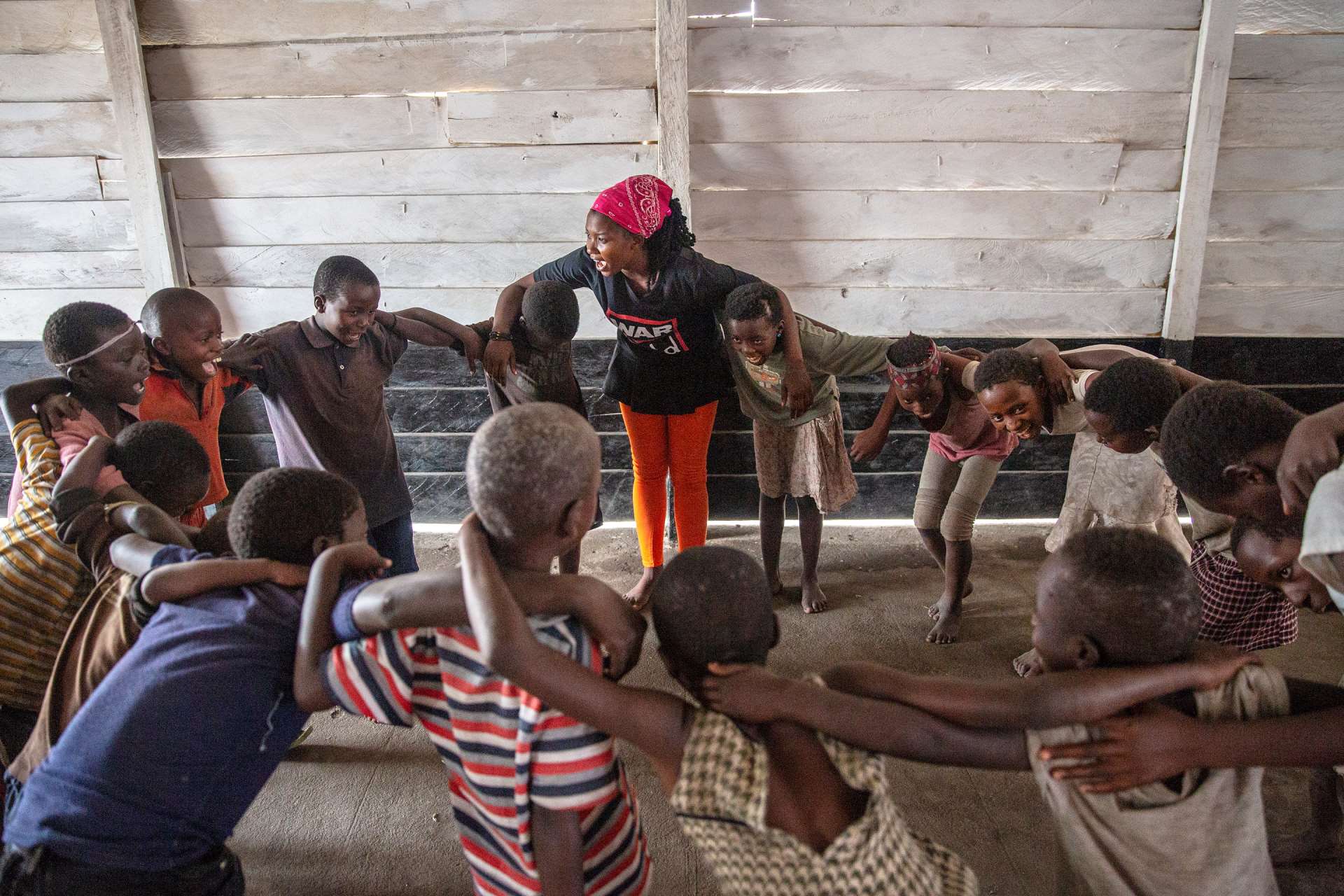Freeing Families from A Legacy of Distress
Parents and caregivers living with the effects of violence and armed conflict bear a heavy burden of stress - one shared with the children in their care. That’s why War Child has moved to provide increased support to the important adults in children’s lives - through the continued development of our Caregiver Support Intervention. Watch the video below to find out more…
Research and Development (R&D) is a key driver of our efforts to meet the urgent and changing needs of children and their communities. Our R&D activities are centred on the continued development of our Care System - an integrated system of care and support to address urgent needs across all levels of a child’s life.
The stresses and physical threats faced by parents and caregivers living in the midst of armed conflict have a direct and negative effect on the children in their care. Caregivers can find it increasingly difficult to protect and support children - which is why we’ve moved to provide them with targeted support through our Caregiver Support Intervention (CSI).
Caregiver Support Intervention Explained
The Caregiver Support Intervention works to lower stress and improve wellbeing among parents and other caregivers. The intervention strengthens the skills and abilities of caregivers - supporting them to make the best use of the parenting knowledge and skills they already possess.
The intervention takes the form of a nine-session programme where small groups of caregivers meet for sessions conducted by trained community facilitators - with the overall aim of reducing stress and improving psychosocial wellbeing.

Following preliminary trials in Gaza and Lebanon, 2019 saw the continued development of the intervention with Syrian refugee communities in northern Lebanon. New indices to measure parenting skills, stress and stress management were developed to further assess the effectiveness of our efforts.
Results to date suggest that caregivers taking part in the research enjoyed both improved wellbeing and parenting skills - and that the children in their care experienced improved psychosocial wellbeing.